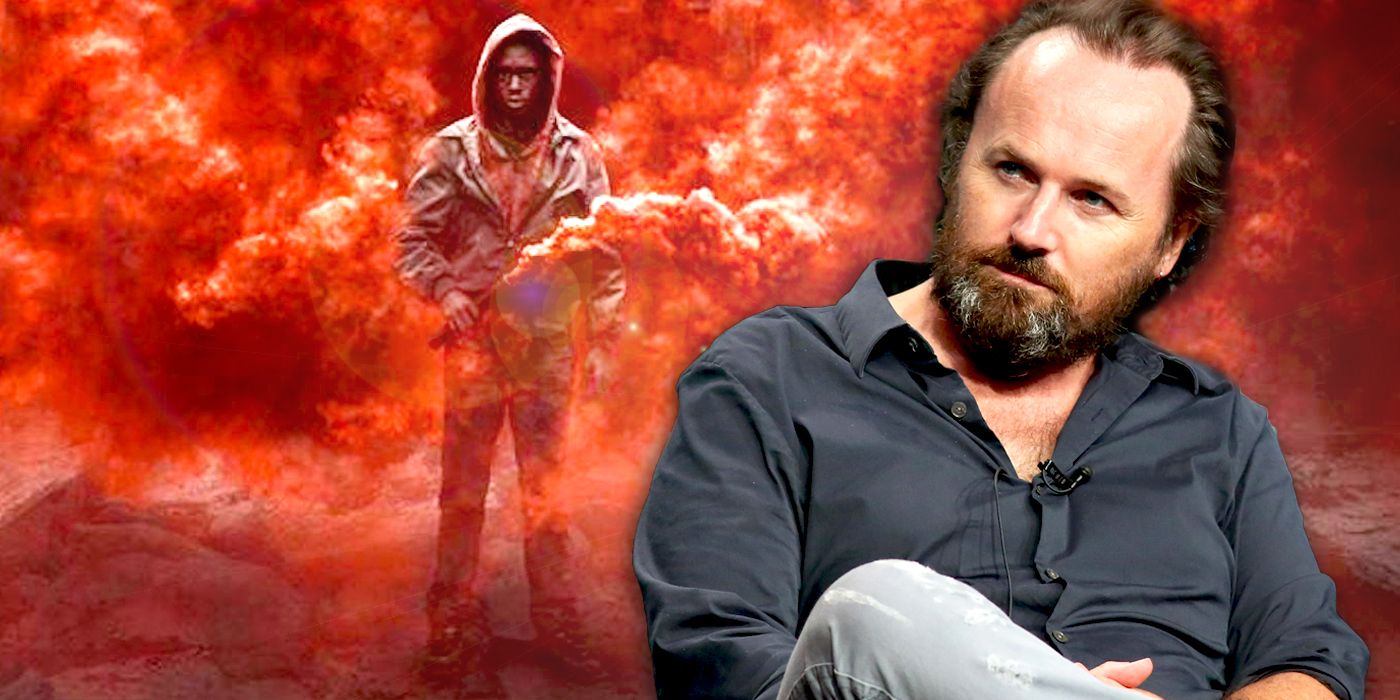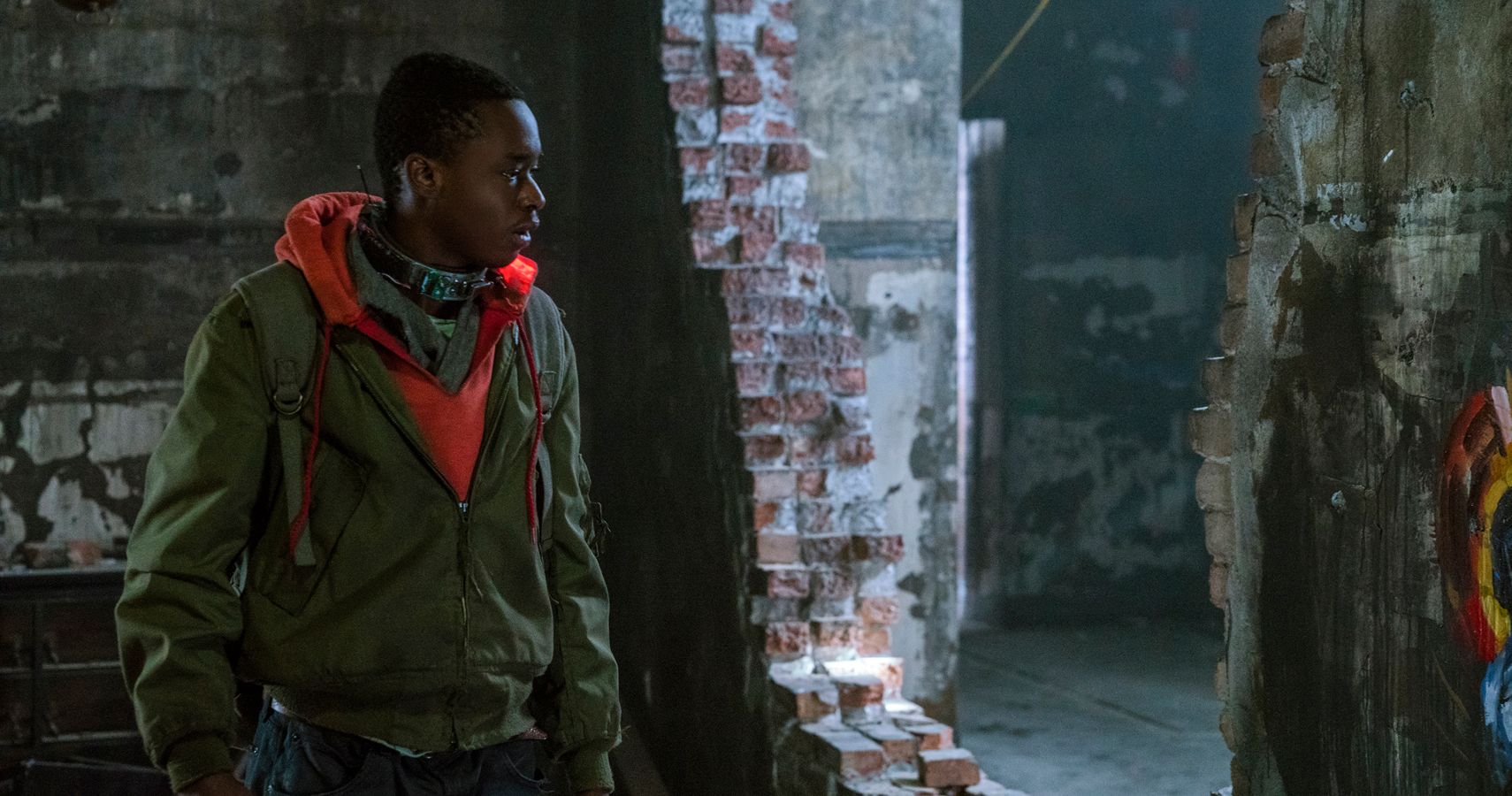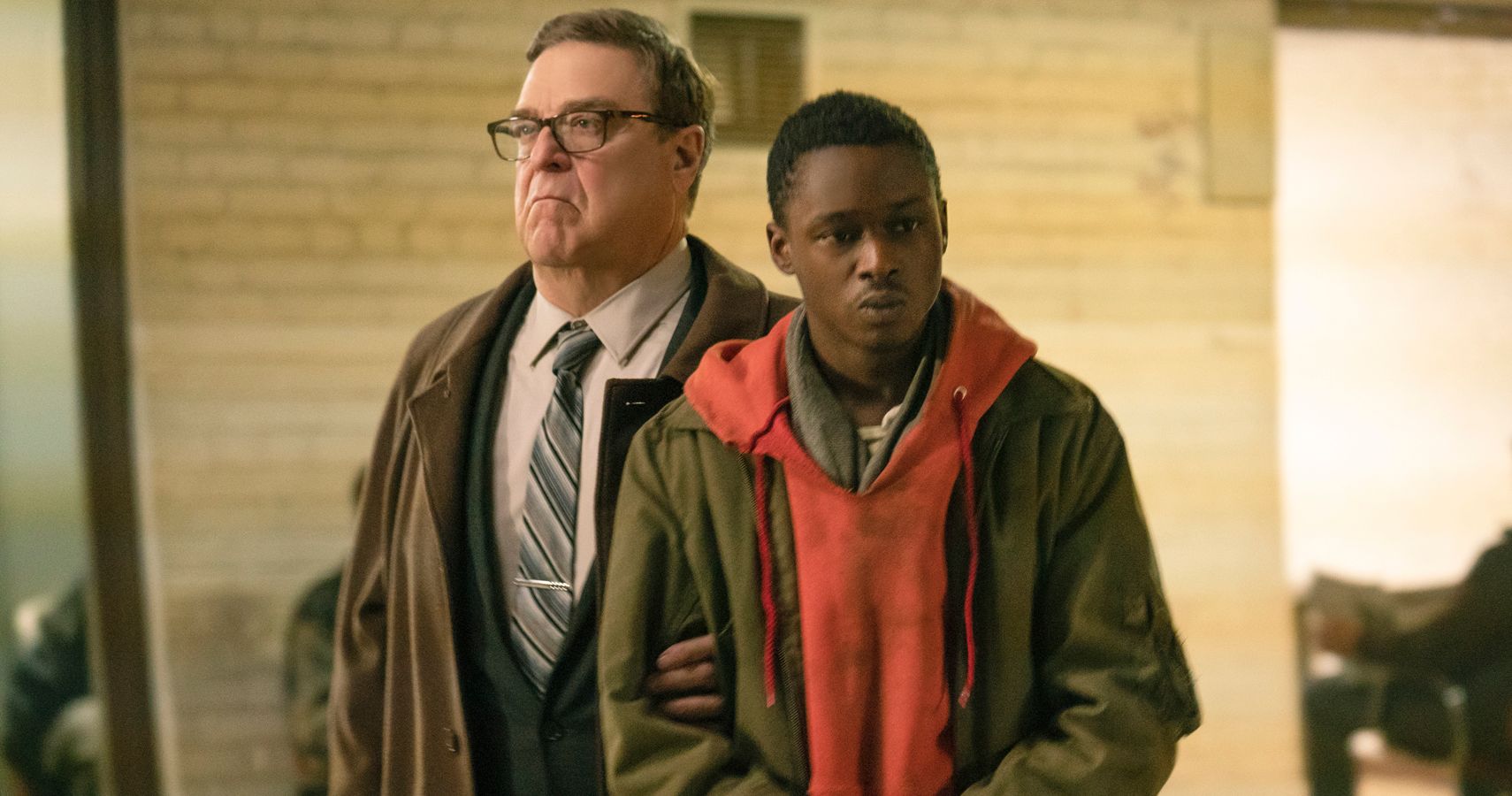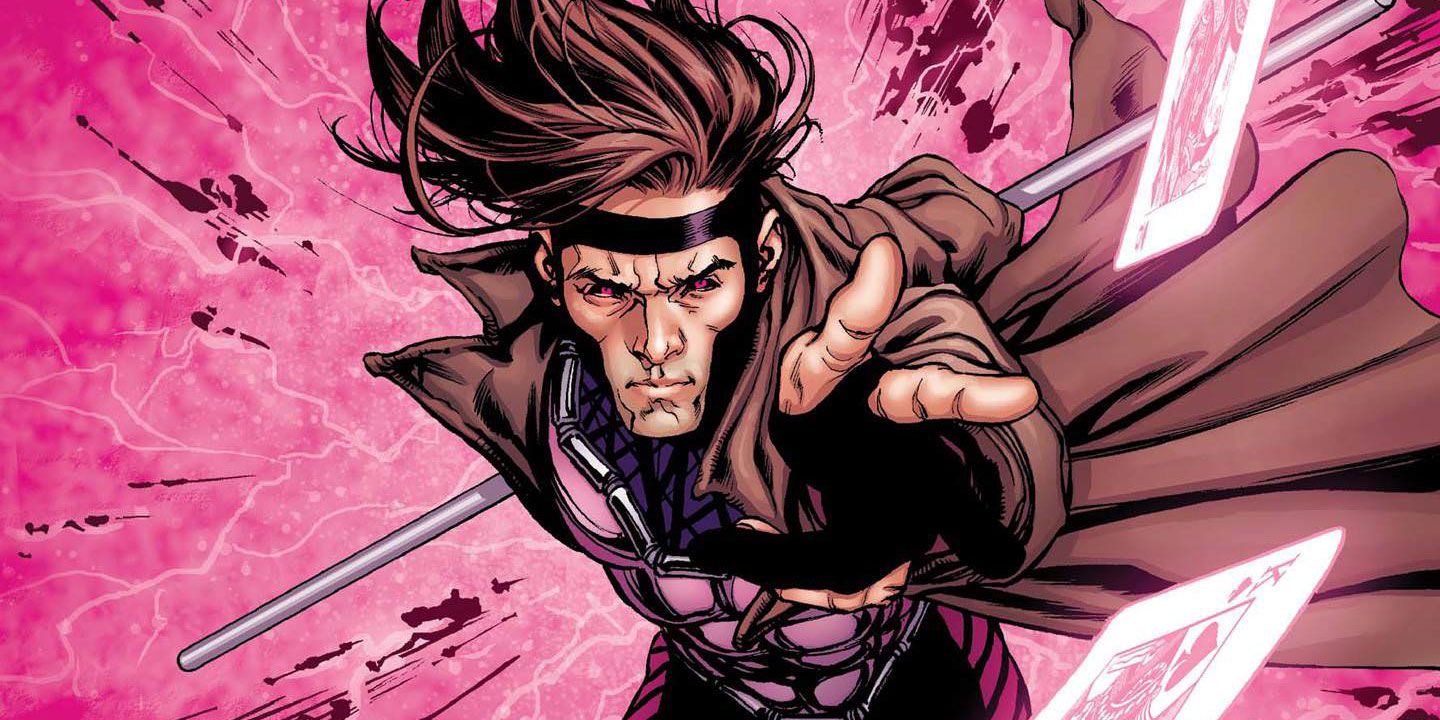To the uninitiated, Focus Features' new thriller Captive State may look like a big budget alien invasion; in other words, a spectacle of a movie. And in its own way it is just that. But director Rupert Wyatt came to the story of a future Chicago torn apart by those who have and haven't submitted to alien overlords with different goals in mind, as he told CBR in an exclusive interview during the lead-up to the film's release.
"I like humanistic stories," Wyatt explained. The director is perhaps best known for reigniting a mega franchise with 2011's Rise of the Planet of the Apes, but his work on Captive State pulls back from grand scale war scenes to focus on humans who have to live their lives in an oppressive regime.
RELATED: Captive State: Everything Is a Lie in Trailer For Alien-Invasion Movie
"I wanted to avoid the Independence Day side of the conflict and immediate fight back with the idea that we just laid down our arms and agreed to this new world order," he told us. "What does that mean for us? What does it mean for those who have become collaborators and work for the near term benefit of our occupiers? And what does it mean for those who fight back as militants and dissidents?
"My intention with this was to lead with character rather than the fireworks display of world creation where you can sometimes get lost emotionally. But at the same time, I wanted to explore a society that's under occupation, and I wanted to do that under the footprint of America in the modern day. In order to properly explore that warts and all, I had to go into the near future."
Appropriately, the movie features an ensemble cast that represent all sides of the conflict. There's a seeming collaborator cop played by John Goodman, a desperate network of resistance outlaws, a mysterious woman in the middle played by Vera Farmiga and one young man (Moonlight's Ashton Sanders) torn between his desire to live in peace or follow the path of his revolutionary brother.
"It's what you call a hypernarrative – one with an ensemble of essentially different protagonists," Wyatt explained. "We're following characters through a world as we leave one behind and pick up on another. It's not everyone's cup of tea, though. In this day and age, a mainstream Hollywood filmmaker relies on the 'Hero's Journey,' which is such a classic structure that people often expect a feel like that. The idea for me was to build a jigsaw puzzle – a very disparate group of characters all uniting. That's what coalesces our story rather than seeing everything through they eyes of one person."
The director admitted that balancing that kind of story with alien monsters was a challenge, but the trickiest part of making Captive State work was guiding the viewer through the story without answering every little question about what the various cast members are striving for. "It's a bit of a Chinese puzzle box," he said. "My face is way too close to the glass. I co-wrote the script, so I know what happens. You're always trying to ask the question, 'How much information does the audience now have? How much do I give, and how much do I pull back?'"
Wyatt drilled into character behavior and hoped the details of their perceptions would feed the excitement of the film. "It's a form of mystery storytelling, and not everybody is going to pick up on the detail I tried to put in the film. But my expectation for the viewer – if I had any expectation – would be to understand that every single decision made in the storytelling of this film has a purpose. There's a meaning to it. It's not just carpentry. Hopefully if they're willing to invest on that level, by the end they'll get the picture in a really clear way and enjoy the film all the more."
RELATED: Halo: Rupert Wyatt Reveals Why He's Not Directing Showtime TV Series
Most of all, Captive State works to swerve away from the expectations of a massive action movie. The film has a sense of scale and grandeur that comes from its on-location shoot in Chicago, as well as some heart-stopping effects. But it's no summer popcorn film.
"In the case of a tentpole movie, it's grand scale. It's the opera. But at the same time, when the stakes are so high and the money is being spent, there's a requirement from the studios for a certain kind of tone that appeals to as many people as possible. That's popular culture right there. That's the definition of it," Wyatt said of the requirements that come with budgets passing $300 million.
NEXT PAGE: What happened to Gambit, and would Wyatt do another superhero movie?
Aside from his work on Apes, the director has come close to working in that mode recently with a contract to direct Fox's now shuttered Gambit solo movie. But while he won't be joining the X-Men universe just yet, he's happy to be debuting a film that's a more down and dirty take on genre conventions.
"As a storyteller, it's long been my ambition to take genre, which I love, and to take the example of guys like Walter Hill and John Carpenter and follow their lead," he explained. "Those are guys who were working essentially in the realm of B movies at that time, but over time, they've become these classic examples of moviemaking.
RELATED: Fantastic Four Messed Up Rupert Wyatt's Plans for Gambit
"They had the ability to experiment with the genre in a way that spoke to who we are as people and our society. But at the same time, they'd tell stories that were riveting, dramatic and exciting. That's what I want to do with Captive State. In many ways, it's more of an espionage movie than it is an alien invasion story.
"It's being marketed more in the direction of it being a grand slam alien invasion movie, and that's fine. But I'd hope the audience coming to see it is looking for something different. People's expectations can sometimes undo the experience of watching a movie. I hope this is the sort of film that will find its audience over time as a result." So, does Wyatt see a future for himself in the likes of superhero films like his planned Gambit adaptation?
"I would love to continue making films at that scale, absolutely... I would say that when you are doing a film like that, you have to approach it with a certain understanding of the expectations required of you. When I did the Planet of the Apes film, we were dealing with some quite dark subject matter. We were dealing with animal vivisection and a man suffering from Alzheimer's. It was very interested in the real world and tough subjects, and I didn't want to be glib, but I also knew this had to appeal to people who were getting off of work and wanted to enjoy a Friday night at the movies. The way we approached that was tone.
In that case, Wyatt added an element of fable or fairy tale feeling to the storytelling and the visuals of the revolutionary Ape world. Captive State goes in another direction, but he stressed that this shouldn't be viewed as a nihilistic commentary on the current sociopolitical landscape. More than anything, the film has an undercurrent about the need to act together on climate change rather than bemoan the state of America today.
RELATED: Gambit: Rupert Wyatt Teases What His X-Men Movie Could've Been
"This is the great democracy of the 20th century and hopefully long will it survive into the 21st," he said. "As a first generation immigrant, I love this country. Though I think at the same time there are civil liberties that can and do get eroded over time. In this world of populism, I think there's a danger of a radical left and a radical right. I think people need to be more centrist and understand the other side. That's harder in these divisive times, but I think one thing that can unite us all is our responsibility for this planet. The world we live in is finite, and we're radically and rapidly altering it where we're in real trouble."
But for now, Wyatt is looking forward to his latest film to reach out and grab audiences, whether they're looking for an alien thriller, a political drama or anything in between. And he plans on sneaking in to some screenings tonight to see how they respond.
"Frankly, it's terrifying," he laughed. "It's always hard when there's a vocational desire to tell stories and put things out in the world for people to respond to. I'm sanguine about it. There's always going to be people out there in the world who don't respond to what you do. But the audience itself – a public audience – is terrifying and challenging to see the reactions and what people will think. I've done it in the past, and I don't stay very long, let's put it that way."
Captive State, from Focus Features, is in theaters now. It stars John Goodman, Vera Farmiga, Ashton Sanders, Jonathan Majors, Alan Ruck, Kevin Dunn, Machine Gun Kelly and Colson Baker.




